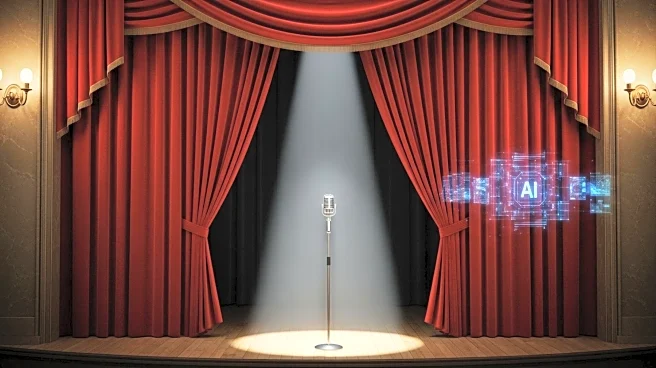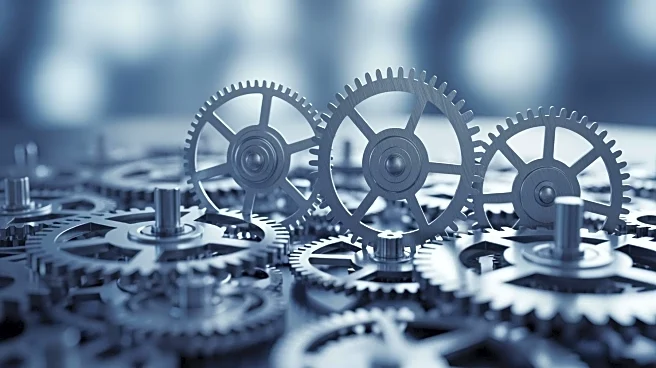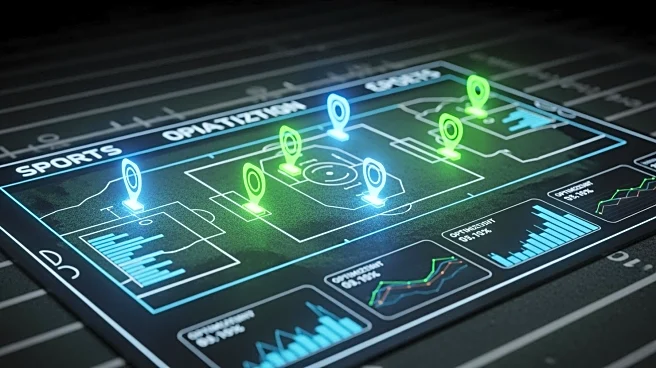What is the story about?
What's Happening?
The theatre industry is experiencing a resurgence in attendance, with West End audiences increasing by 11% and regional audiences by 4% since 2019. This growth is attributed to factors such as the return of tourists post-COVID, affordable ticket schemes, and the appeal of live performances. A significant aspect of this trend is the contrast between live theatre and the growing influence of artificial intelligence (AI) in other creative sectors. While AI has infiltrated areas like journalism and music, theatre remains a bastion of authentic human connection, offering real emotions and shared experiences. Despite AI's capabilities in automating aspects of theatre production, such as lighting and sound, the essence of live performances remains rooted in human interaction.
Why It's Important?
The rise of AI in creative industries poses challenges to traditional forms of art, but theatre's ability to offer genuine human experiences makes it uniquely resilient. As AI continues to replace jobs and alter human connections, theatre provides a space for emotional engagement and societal reflection. This resilience is crucial as it allows theatre to explore AI's implications while maintaining its core values. The industry's ability to integrate AI as a creative partner rather than a replacement highlights its adaptability and potential to thrive amidst technological advancements. This dynamic could serve as a model for other sectors facing similar challenges.
What's Next?
Theatre-makers are actively exploring AI's role in enhancing productions without compromising the human element. Research projects at institutions like Stanford University and collaborations with technology companies are underway to integrate AI into theatre creatively. Upcoming events, such as the Royal Ballet and Opera's RBO/Shift festival, will further examine the intersection of opera and technology. The theatre community is also addressing concerns about AI's impact on workers through manifestos aimed at protecting industry professionals. As AI continues to evolve, theatre is poised to leverage its benefits while safeguarding its unique human-centric experiences.
Beyond the Headlines
The integration of AI in theatre raises ethical questions about the authenticity of art and the preservation of human creativity. While AI can streamline production processes, it also challenges the traditional roles of artists and creators. The theatre industry's approach to AI could influence broader cultural and ethical discussions about technology's role in society. By maintaining a balance between innovation and tradition, theatre may offer insights into how other creative fields can navigate the complexities of AI integration.















